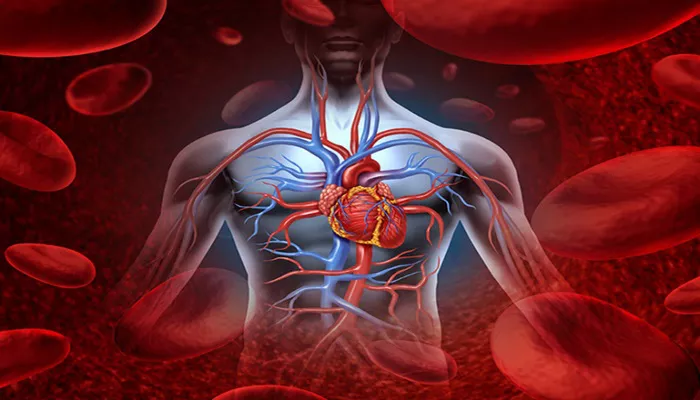Coronary heart disease (CHD) is one of the leading causes of death worldwide. While lifestyle factors such as diet, exercise, and smoking play significant roles in the development of CHD, genetic predisposition also significantly influences the risk.
Understanding these genetic risk factors can help in early detection, prevention, and personalized treatment of coronary heart disease.
The 7 Major Genetic Risk Factors for Coronary Heart Disease
1. Genetic Basis of Coronary Heart Disease
CHD occurs when the coronary arteries, which supply blood to the heart muscle, become narrowed or blocked due to the buildup of plaque—a condition known as atherosclerosis. Genetics can influence various processes related to the development of atherosclerosis and other factors contributing to CHD.
2. Familial Hypercholesterolemia
One of the most well-known genetic disorders associated with CHD is familial hypercholesterolemia (FH). FH is an inherited condition characterized by extremely high levels of low-density lipoprotein (LDL) cholesterol in the blood, leading to early development of atherosclerosis and increased risk of heart attacks. FH is caused by mutations in genes involved in cholesterol metabolism, primarily the LDLR gene, which encodes the LDL receptor. Mutations in the APOB and PCSK9 genes can also cause FH.
SEE ALSO: What Are The Early Symptoms of Coronary Artery Disease?
3. Polygenic Risk Scores
Recent advances in genetic research have identified multiple genetic variants associated with CHD, often through genome-wide association studies (GWAS). These studies have led to the development of polygenic risk scores (PRS), which aggregate the effects of numerous small genetic variations. Individuals with high PRS for CHD have a significantly increased risk of developing the disease, comparable to or even exceeding the risk conferred by traditional risk factors like high cholesterol or hypertension.
4. Lipoprotein(a) Levels
Lipoprotein(a) [Lp(a)] is a type of lipoprotein associated with an increased risk of CHD. The levels of Lp(a) in the blood are largely determined by genetic factors, specifically variations in the LPA gene. High Lp(a) levels can lead to the accumulation of cholesterol in the arteries and promote atherosclerosis. Unlike other cholesterol-related factors, lifestyle changes have minimal impact on Lp(a) levels, highlighting the importance of genetic testing and targeted therapies.
5. Hypertension and Genetic Variants
Hypertension, or high blood pressure, is a significant risk factor for CHD and has a genetic component. Several genetic variants have been linked to blood pressure regulation. For example, variants in the genes encoding angiotensin-converting enzyme (ACE), angiotensinogen (AGT), and other components of the renin-angiotensin-aldosterone system can affect blood pressure levels and thus influence CHD risk.
6. Diabetes and Genetic Susceptibility
Type 2 diabetes is another major risk factor for CHD, and its development is influenced by both genetic and environmental factors. Specific genetic variants associated with glucose metabolism, insulin resistance, and beta-cell function increase the risk of developing type 2 diabetes, which in turn elevates the risk of CHD. Genes such as TCF7L2, PPARG, and KCNJ11 are among those implicated in diabetes and consequently CHD risk.
7. Inflammation and Immune Response
Chronic inflammation plays a crucial role in the development of atherosclerosis and CHD. Genetic variations that affect the immune system and inflammatory response can contribute to CHD risk. For instance, variants in the CRP gene, which encodes C-reactive protein—a marker of inflammation—have been associated with CHD. Other genes involved in the inflammatory response, such as IL6 and TNF, also influence the risk of developing coronary heart disease.
Other Genetic Factors
Several other genetic factors contribute to CHD risk. These include:
Fibrinogen Levels: Variations in the FGB gene can influence fibrinogen levels, affecting blood clot formation and CHD risk.
Apolipoprotein E (APOE) Genotype: Different alleles of the APOE gene affect lipid metabolism and cardiovascular risk, with the APOE ε4 allele being associated with higher risk.
Gene-Environment Interactions: The interplay between genetic predisposition and environmental factors, such as diet and physical activity, also significantly impacts CHD risk.
Genetic Testing And Personalized Medicine
Genetic testing for CHD risk can provide valuable information for early intervention and personalized treatment strategies.
Identifying individuals with high genetic risk can lead to proactive measures, such as lifestyle modifications, targeted therapies, and closer monitoring.
Genetic counseling can help individuals understand their risk and make informed decisions about their health.
Current And Future Applications
Pharmacogenomics: Understanding genetic variations can help tailor medications to individuals, improving efficacy and reducing adverse effects. For example, genetic testing for variants in the CYP2C19 gene can guide the use of antiplatelet drugs like clopidogrel.
Gene Therapy: Emerging research in gene therapy holds promise for directly addressing genetic causes of CHD. Although still in experimental stages, this approach could potentially correct genetic defects responsible for conditions like familial hypercholesterolemia.
Conclusion
The genetic risk factors for coronary heart disease are complex and multifaceted, involving numerous genes and their interactions with environmental factors. Advances in genetic research have significantly enhanced our understanding of these factors, leading to improved risk assessment, prevention, and treatment strategies. While lifestyle modifications remain crucial, integrating genetic information into clinical practice offers a promising avenue for combating coronary heart disease and reducing its global impact.

